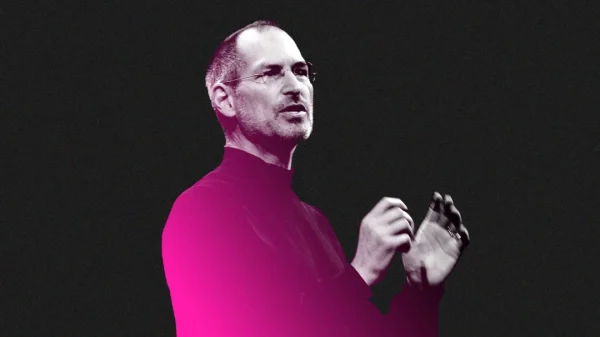30 Years Ago, Steve Jobs Said 1 Habit Separates the Doers From the Dreamers

Shawdesh Desk:
One of my least favorite things to do is ask for help. Not only do I not like to ask, but I take a somewhat perverse pride in figuring out how to do difficult things — especially difficult physical things — on my own. (Although maybe that’s just me rationalizing why I don’t like asking for help.)
Go it alone? That’s what entrepreneurs do.
I’ve never found anyone that didn’t want to help me if I asked them for help.
I called up Bill Hewlett (co-founder of Hewlett-Packard) when I was 12 years old. “Hi, I’m Steve Jobs. I’m 12 years old. I’m a student in high school. I want to build a frequency counter, and I was wondering if you have any spare parts I could have.” He laughed, and he gave me the spare parts, and he gave me a job that summer at Hewlett-Packard … and I was in heaven.
Most people never pick up the phone and call. Most people never ask … and that’s what separates, sometimes, the people who do things from the people who just dream about them.
To Jobs, asking for help was foundational to success. Classic example? The first iPhone.
Jobs could have gone the self-reliant route. He could have tried to fix the problem himself using Apple’s considerable resources. Instead, Jobs called Wendell Weeks, the CEO of Corning Glass, and described the type of glass he needed. After some back and forth and a few cleverly effective words of persuasion, Weeks agreed to help by providing gorilla glass, a product the company had developed in the 1960s but never put into production.
Years later, Jobs biographer Walter Isaacson walked into Weeks’s office and found only one memento on display, a letter from Jobs that said, “We couldn’t have done it without you.”
That’s the thing about asking for help. Admitting you need help can make you feel weak, or vulnerable, or somehow “less than” in the eyes of the other person.
But that’s not what happens. When you ask for help, in the right way, other people don’t think about you. They think about how your request implicitly shows you respect them, implicitly shows you trust them. It shows you value or admire the skills, talents, experiences, or resources they clearly worked hard to obtain.
Granted, asking for help also makes you vulnerable. A few years ago, when I wanted to ask Adam Grant for a blurb for my book, I almost didn’t because I was afraid he would turn me down. The same was true for Ryan Holiday.
Yet not asking would have guaranteed not getting. (If you’re wondering, I got.)
As Jobs said, “You’ve gotta act. And you have to be willing to fail … with people on the phone, with starting a company. … If you’re afraid of failing, you won’t get very far.”
If you don’t ask, you also won’t give other people the opportunity to make a difference in someone else’s life, no matter how small.
Judging by the framed letter on his wall, Weeks was clearly proud to have made that difference for Jobs.
Maybe that’s why asking for help is such a strong predictor of success. No one does anything worthwhile on their own, and asking for help could be the first step in building long-term, mutually beneficial relationships.
Which, if you think about it, sounds like a great definition of success.























Leave a Reply